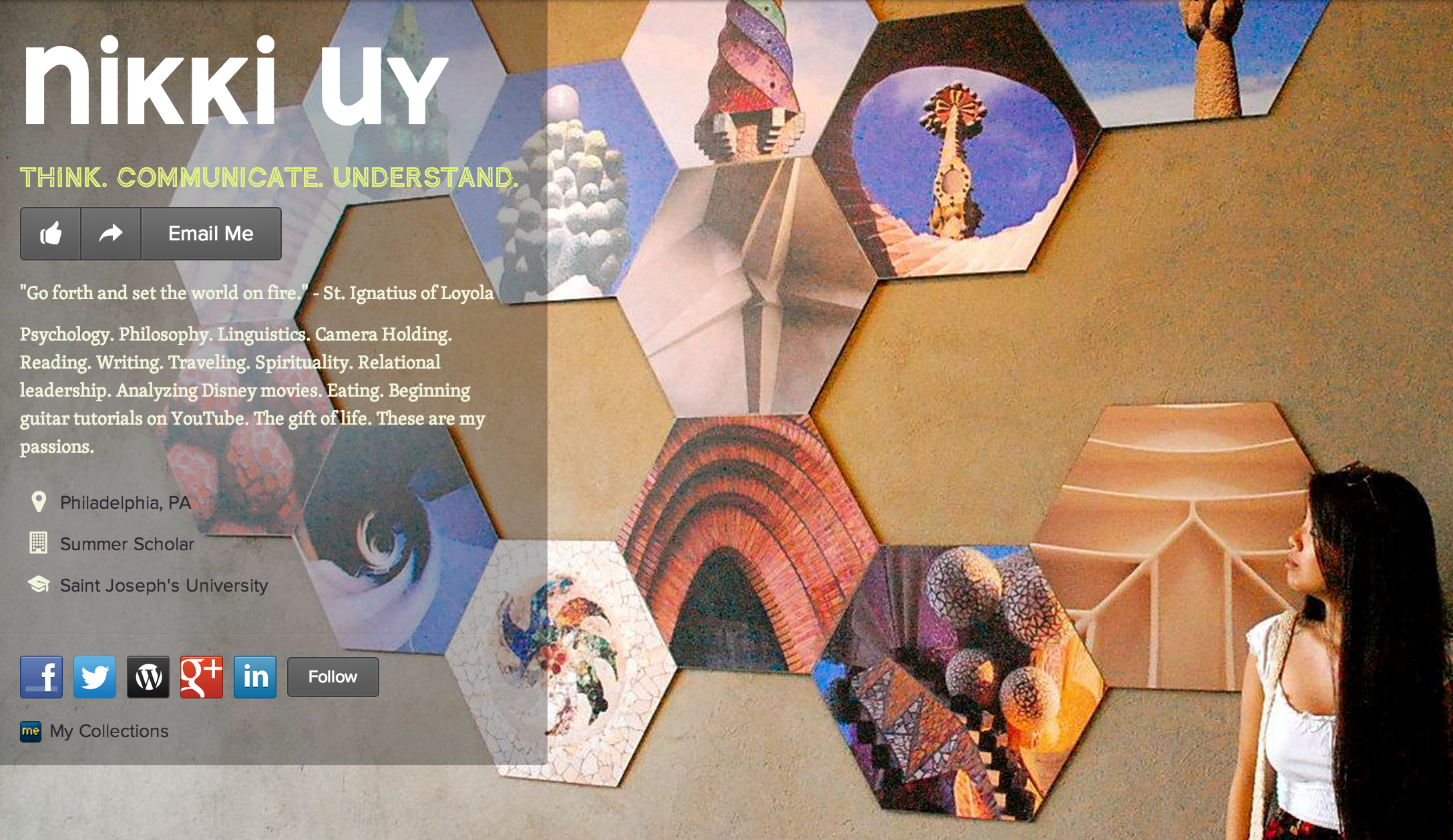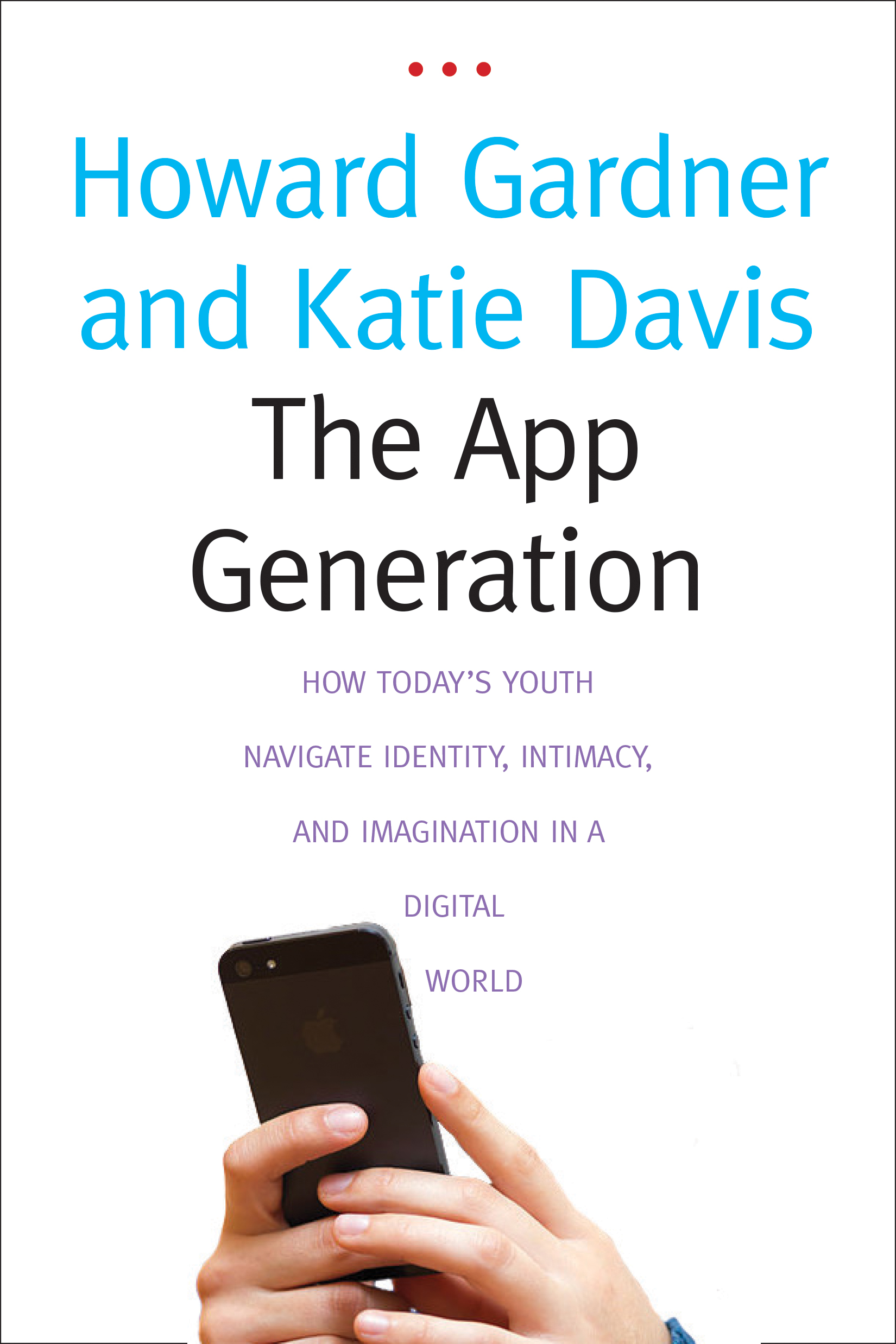In day 22’s post on Monday, I introduced Katie Bean as one of the biggest activators to help spread the Niche Movement when I launched it in early 2013. Because of Katie’s support, I was introduced to Nikki Uy. Nikki was a student at St. Joseph's University, when she was accepted into our first Niche Movement online cohort program in the spring of 2013. When I met Nikki, she was your typical student leader:
- led a group of volunteers to teach ESL
- part of the school’s chapel choir
- Dean’s list
- and was part of the peer educator program.
Within the first few weeks of working with Nikki, I realized that as a junior in college she was close to finding her niche but didn’t know how to take the next step. She has a passion for speech therapy and teaching English as a second language to others. Specifically, Nikki wanted to learn how to help others tell their story by participating in our program. In reality, what Nikki needed, was a way to tell her story first, before she could help others tell their story.
I am a very big advocate for young adults to leverage digital networking and social media tools while keeping in mind that face to face conversations still is still the most valuable form of communication. On paper Nikki had a great resume from her extra-curricular experience at St. Joe’s, but she was missing a digital footprint. She was not on Twitter and had only reactivated her Facebook account to connect with others in our cohort. She didn’t have a LinkedIn profile, blog or any real significant presence online. Here was a young woman that had accomplished so much, yet if someone searched for her name online they would find nothing.
This happens to all too many student leaders. Employers look at a resume they like and then search the name online. Finding nothing is about as bad as finding a college party picture. This is why producing a strong digital identity is such a critical component of the Niche Movement, because in order to land the job you love (or start a business you love) you need to have a strong digital presence.

As part of the cohort I was leading that spring, I taught students how to not only leverage digital networking and the tools at their fingertips, but I helped them with their digital footprint. The first thing I did with Nikki was advise her to give Twitter a chance and create an account. Nikki created an account and together, we helped her identify Twitter hashtags, accounts to follow, and weekly chats to jump into. By the end of the cohort experience, Nikki already saw the power of digital networking and advantages of putting herself out there. In June 2013, she wrote a follow up blog post for The Niche Movement sharing her experiences of how she connected with other speech therapists, graduate students, and became reassured that there was a high demand of work in this field. In her post, Nikki said “These sort of connections, simply through reading Tweets, have reaffirmed what I want to do with my life.” That is how powerful digital tools can be for students when they understand them and how to best put them into action.
I came to find out that Nikki was also passionate about photography, videography, and documentaries. This all made sense, especially, since she was passionate about telling other people’s story. The six week program was over, but the journey of how Nikki was telling her story and getting closer to her niche was just getting started.
In the summer of 2013, going into her senior year, Nikki went on to create a well-designed about.me page and started a blog where she was documenting her life photo journalism style - something that was inspired by other writers and artists she connected with on Twitter.
Throughout her senior year, her story continued to unfold and she continued to make more connections. As many college students do, she spent a weekend unwinding and went on a Netflix binge. While she was watching ShelterMe, a documentary series that celebrates shelter pets with positive and uplifting stories, she was left so inspired and took to Twitter. Her initial tweet was favorited by @ShelterMeTV and they also followed Nikki. She then direct messaged (DM) them thanking them for the follow and mentioned where she was from and asked if there was anyway to help.
Unfortunately, Nikki didn’t hear back right away but that didn’t discourage her. She followed up about two weeks later with another DM. About two weeks after that, she received an email from Steve Latham, the director and producer of ShelterMeTv. He wanted to jump on a phone call and talk wit Nikki because now, there was an opportunity to help. Nikki and Steve connected and found out that they had a story they were shooting in Long Beach Island, New Jersey and they needed a video production assistant for the weekend.
Nikki pushed through her comfort zone and accepted the 3 day position even though she had little video experience and was a Philosophy major. This was an experience that Nikki would never forget. Her responsibilities in addition to taking pictures, included holding reflectors, posing for camera angles, and assisting the crew with errands up and down the island. She was working side by side with a crew that has worked with MTV, Travel Channel, and National Geographic. All from one tweet - how incredible?!

Nikki didn’t return to school her senior year all of the sudden planning to change her major and try and land a job in the media field. What this experience did encourage was for her to use her interest in taking pictures to tell stories (like she learned from ShelterMeTV) in a creative and artistic way. In her own words, “I basically found another niche.”
While Nikki’s story is an incredible one, the outcome is not that unusual for those students utilizing digital tools and willing to push boundaries. The reason why this story may seem so ‘unrealistic’ is because so many students are not taught how to use these tools to connect or amplify their message. We assume that as digital natives they know how to do all this, but that is simply not true.
Working with Nikki was one of the first times I got to see my two passions come together (much like she ended her story with a second niche). As I have mentioned in previous posts, I am passionate about social media and digital trends. In this experience I was able to share that knowledge with Nikki and her fellow cohort members to assist them in producing their digital footprint. The Niche Movement will never be the same after that experience, because now producing a strong digital presence is part of every conversation, workshop, keynote, etc. In fact, when I gave my first WOW Talk last November, I shared Nikki’s story while imploring other students and job hunters to follow her lead and start working on creating their strong digital presence.
What They Taught Me:
My experience working with Nikki taught me that these two worlds, ending employment unhappiness and social media/digital identity, were interconnected. She also taught me that when students say they are not a fan of social media, we can’t just say ok and back off. We need to find out why. Perhaps Nikki wasn’t into the shallow side of social media, but showing her the productive and purpose driven side open her eyes to a completely new perspective on digital tools.
How They Inspired Me:
In Nikki’s application, she said that she finds fulfillment in her work if she can make just one person smile throughout the day while retaining her positive personality. Well, her story has made me smile everyday. I have presented Nikki’s journey in various talks that I have presented over the last 6 months. She has inspired me to keep helping students and that The Niche Movement’s strategies can help young adults get closer to finding their niche early in life.
#NicheTip:
The Niche Movement showed Nikki how these platforms, apps, and technology can speed up the process of bringing people together and growing your network. I encourage both students and professionals to be using these tools. Everyone has a reason they get up in the morning and something they care about. Use social media to amplify your message and connect with others who believe what you believe.
To read Nikki’s amazing story and connect with her, check out her blog post featured on our site.












